Standing at 196 cm. (six feet six inches) in his socks, Owen Bosen, looks every bit the quintessential dorai from our colonial past.

His facility with the local languages gives him easy access to the homes and hearts of the local community residing by the bank of the river Cauvery. Decades ago, he rode down the untarred dusty road from the small town of Kanakapura to Sangam, the confluence of the Arkavati river with the Cauvery. Armed with a fishing rod, he was looking for some sport of catching a fish or two.
As he parked his bike near the bus stand, Bola and Suban approached him. Employed as guards of the Wildlife Association of South India (WASI), their sharp eyes quickly spotted the fishing rod that Owen was carrying. They marched up to him and asked him to produce the fishing license. Taken aback by the authority and attitude displayed by Bola and Suban, Owen confessed that he did not have one and that he was not aware that a fishing license was required to fish in the Cauvery. He was taken to the sign board, which was prominently displayed and as he read through its contents he quickly realised that this stretch of the Cauvery was ‘protected waters’ under the custodianship of WASI, and therefore fishing without a valid licence was tantamount to poaching, a punishable offence, to be dealt with in accordance with the laws of the land. Not wanting to argue, Owen, after some polite conversation with Bola and Suban to build bridges for the future, rode back to Bengaluru and quickly applied for WASI membership.
THE CAUVERY AND THE MAHSEER
Denne historien er fra August 2019-utgaven av Sanctuary Asia.
Start din 7-dagers gratis prøveperiode på Magzter GOLD for å få tilgang til tusenvis av utvalgte premiumhistorier og 9000+ magasiner og aviser.
Allerede abonnent ? Logg på
Denne historien er fra August 2019-utgaven av Sanctuary Asia.
Start din 7-dagers gratis prøveperiode på Magzter GOLD for å få tilgang til tusenvis av utvalgte premiumhistorier og 9000+ magasiner og aviser.
Allerede abonnent? Logg på
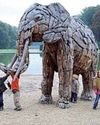
Why Children Are Needed To Help Save The World
On my very first day in India, I encountered many marvelous new customs not practiced in the United States, my home country. But the most curious by far involved trees. Here and there, alongside the roaring streets of Mumbai were rings of marigold wreathed around twisting banyan trunks like dried rays of afternoon sunlight…
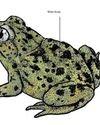
Who's Who?
Fact: all toads are frogs, but not all frogs are toads! Let’s unpack this...

The Sea Raptor
The White-bellied Sea Eagle Haliaeetus leucogaster is one of the most common raptors along the Indian coastline. Nevertheless, the sight of this soaring, broad-winged, white and black bird of prey is nothing less than majestic
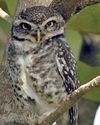
Bringing Up Bob Hoots.
While we were visiting a friend’s farm in the village of Yelachetty, near Bandipur Tiger Reserve, we found Spotted Owlets nesting on the tiled roof… and one of the chicks on the kitchen floor!

Yala, Land Of The Leopard
Yala is not only Sri Lanka’s second-largest, but also the most-visited national park in the island nation.
The Wizards Of Oz!
Australia is not only a country, but also a continent. The land down under, cut-off from the rest of the world has an abundance of unique species of native animals, birds, reptiles, insects and plants.

Scales & Tails
I was really excited and looking forward to the workshop on reptiles and amphibians at Nature’s Nest in Mollem, Goa, between June 24 and 26, 2017. It was my opportunity to meet renowned herpetologist Varad Giri.
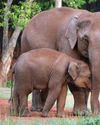
Big, Brilliant And Endangered
When one thinks of elephants, the first word that probably comes to mind is BIG! But elephants, while they may be the largest creatures on land, are not just big and powerful, they’re wise and sensitive as well. Recent scientific studies have established that they are among the most intelligent animals in the world.

Earth Manners
Everyday habits matter! Let’s be kind to the planet, animals and ourselves!
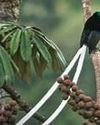
World Scan
CHINA’S IVORY TOWNAn explosive investigation by the Environmental Investigation Agency has revealed how criminal gangs originating from an obscure town in southern China have come to dominate the smuggling of ivory tusks poached from African elephants.